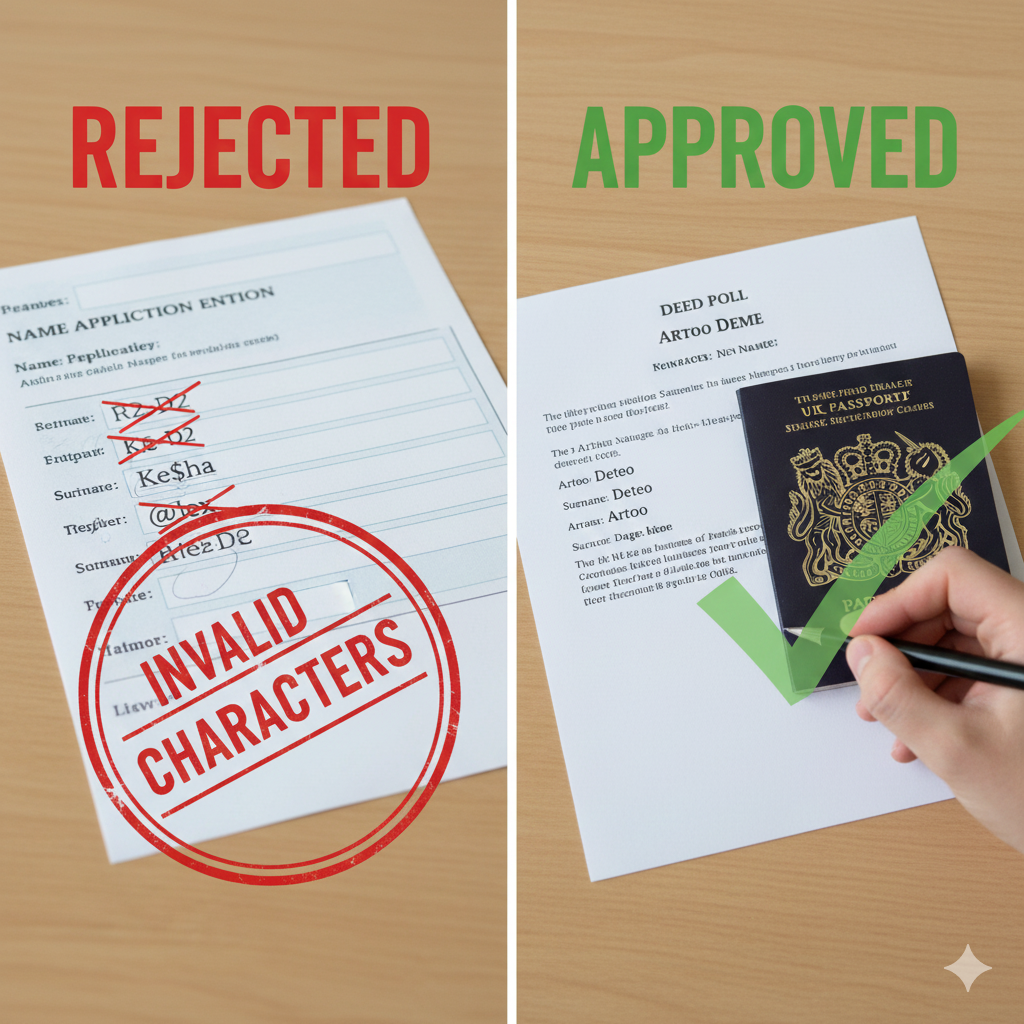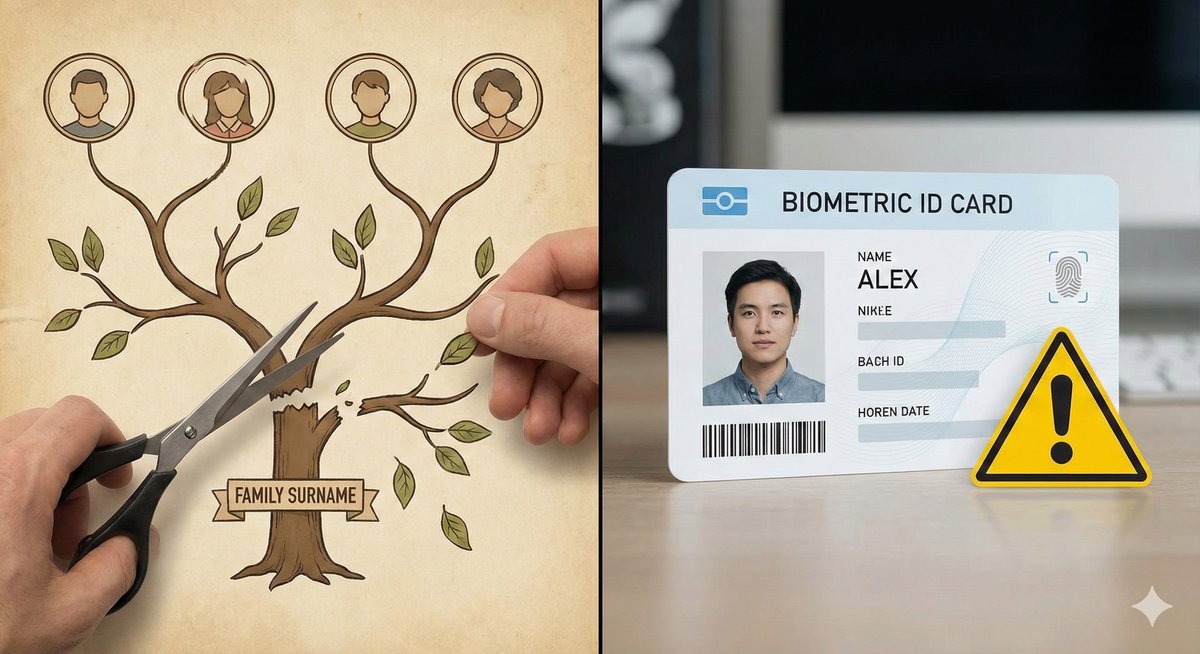Choosing a Name That Will Be Accepted: What’s Allowed in the UK
Changing your name in the UK can be exciting — a fresh start, a new identity, or simply a name that feels more “you.” But here’s the thing: not every name is automatically accepted. Some are rejected because they break the rules or create problems for official records.
The good news? Most names are perfectly fine if you understand the basic guidelines and plan ahead. Knowing what’s allowed can save you from headaches later, like having your deed poll rejected by banks, the passport office, or other organisations.
In this guide, we’ll cover the legal limits on names, the kinds of names that tend to get rejected, how rules differ for adults and children, and practical tips to make sure your chosen name is accepted everywhere it matters.
2. Legal Basics: What Makes a Name Acceptable
In the UK, the rules around names are surprisingly flexible — you can choose most names you like. But there are a few boundaries, mostly to protect people and make sure records stay clear.
Names that are usually acceptable:
- Traditional names or modern creations.
- Names with spaces, hyphens, or apostrophes (as long as they’re practical).
- Most foreign or unusual names, provided they aren’t offensive or misleading.
Names that aren’t accepted:
- Offensive names: anything rude, discriminatory, or likely to cause distress.
- Misleading names: for example, pretending to be royalty or a public figure.
- Numbers, symbols, or emojis: “@lexa” or “John123” won’t fly.
- Extremely long or impractical names: names that make official records confusing or unmanageable.
The general rule is simple: if a name is likely to cause confusion, offence, or administrative headaches, it’s probably going to be rejected.
3. Names That Often Get Rejected
Even though most names are fine, some pop up again and again on the “no-go” list. Knowing these ahead of time can save a lot of frustration.
- Offensive names – Anything rude or discriminatory will be rejected.
- Misleading names – Names that suggest you’re royalty or a public figure aren’t accepted.
- Numbers, symbols, or emojis – Names like “Alex💫” or “John123” won’t be approved.
- Extremely long names – Complicated names may be refused for practical reasons.
The takeaway? Keep your new name clear, readable, and practical to ensure it’s accepted everywhere.
4. Differences Between Adults and Children
Changing a name as an adult is pretty straightforward: you pick a name, complete a deed poll, and update your records. But for children, there are a few extra steps to keep in mind.
- Consent matters: For anyone under 16, everyone with parental responsibility must agree.
- Teenagers: In England & Wales, 16- and 17-year-olds can usually apply without parental consent. In Scotland, the same applies once a child turns 16.
- Practical considerations: Choose a name that’s easy for the child to use day-to-day.
Adults have more freedom, but for children, consent and practicality are just as important as legality.
5. How to Choose a Name That Will Be Accepted
- Keep it simple and clear — easy-to-spell names avoid record issues.
- Avoid confusing or controversial spellings.
- Consider how it looks on passports, banks, and school records.
- Check official guidance to avoid surprises.
- For children, prioritise simplicity and consent.
By following these tips, you can pick a name that feels right and is recognised everywhere it matters.
6. Using Our Service to Make Name Choices Easier
We provide a ready-to-use deed poll document for £9.49, designed to be legally valid and simple. Each time you use it, you get a correctly formatted document — no guessing, no messy forms.
Along with the deed poll, you’ll receive a guide on how to update all your key records — passports, driving licences, bank accounts, and more. It’s a stress-free, reliable way to handle your name change correctly.
7. Conclusion
Choosing a new name should feel exciting, not stressful. Most names are fine as long as they’re clear, practical, and respectful. Check the rules, plan ahead, and you’ll enjoy a smooth, confident name change experience.
With the right preparation — and our easy-to-use deed poll service — your new name will be recognised everywhere it needs to be across the UK.



